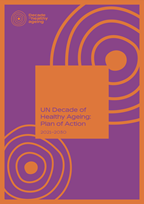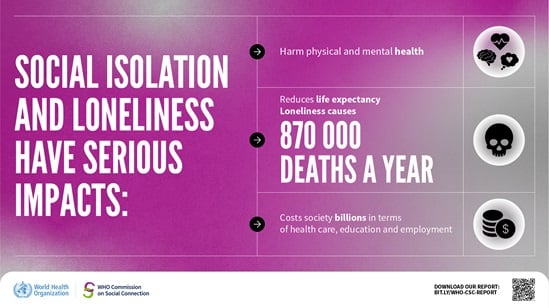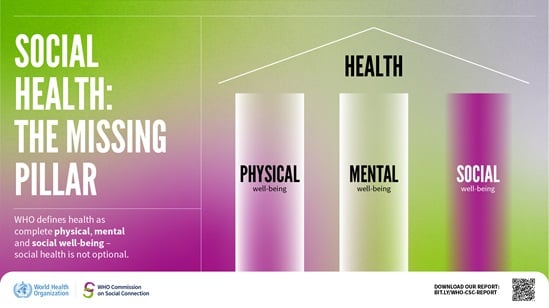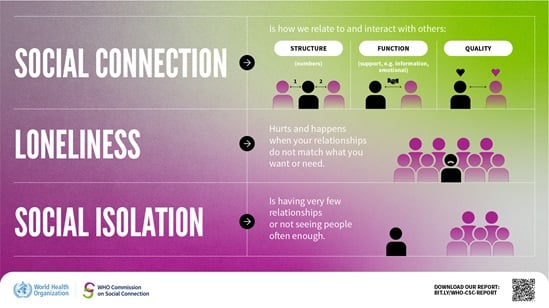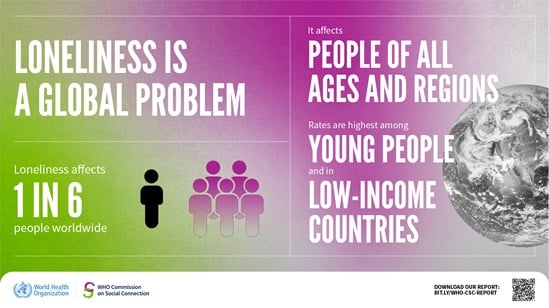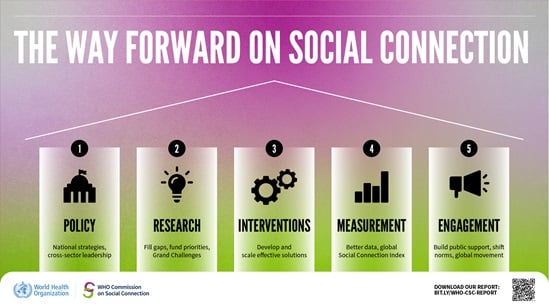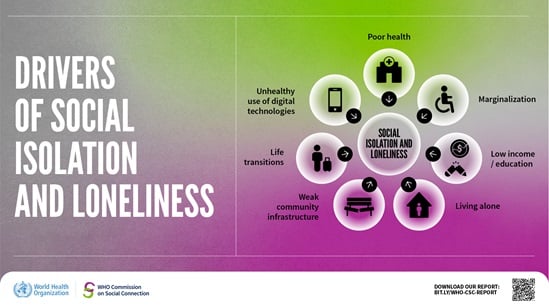Reducing social isolation and loneliness among older people
Social isolation and loneliness are important, but often neglected, social determinants of health across all ages, including for older people. High-quality social connections are essential to our mental and physical health and our well-being.
Social isolation and loneliness are widespread, with around 16% of people worldwide – one in six – experiencing loneliness. While the latest estimates suggest that loneliness is most common among adolescents and younger people, people of all ages experience loneliness – including older people, with around 11.8% experiencing loneliness. A large body of research shows that social isolation and loneliness have a serious impact on physical and mental health, quality of life, and longevity.
A wide variety of face-to-face or digital interventions have been developed to reduce social isolation and loneliness among older people. These include social skills training, community and support groups, befriending, and cognitive behavioural therapy. Creating more age-friendly communities by improving access to transportation and information and communication technologies can also help reduce social isolation and loneliness. In addition, laws and policies that address marginalisation and discrimination can foster greater social connection.
In the context of the UN Decade of Healthy Ageing (2021–2030), WHO is working with partners to address social isolation and loneliness as pressing public health and policy concerns by:
- Developing guidance on how to implement and scale up effective interventions to reduce social isolation and loneliness;
- Improving research and strengthening the evidence for what works; and
- Creating a global coalition to increase the political priority of social isolation and loneliness among older people.
Recognising that a life course approach is critical to promote social connection, including among older people, WHO has also established the Commission on Social Connection to see the issue recognised and resourced as a broader, global public health priority. The Commission has now released its flagship report, which brings together the latest evidence and data to show that social isolation and loneliness are widespread and have severe harms to our health and well-being, but also that solutions exist to address them.




